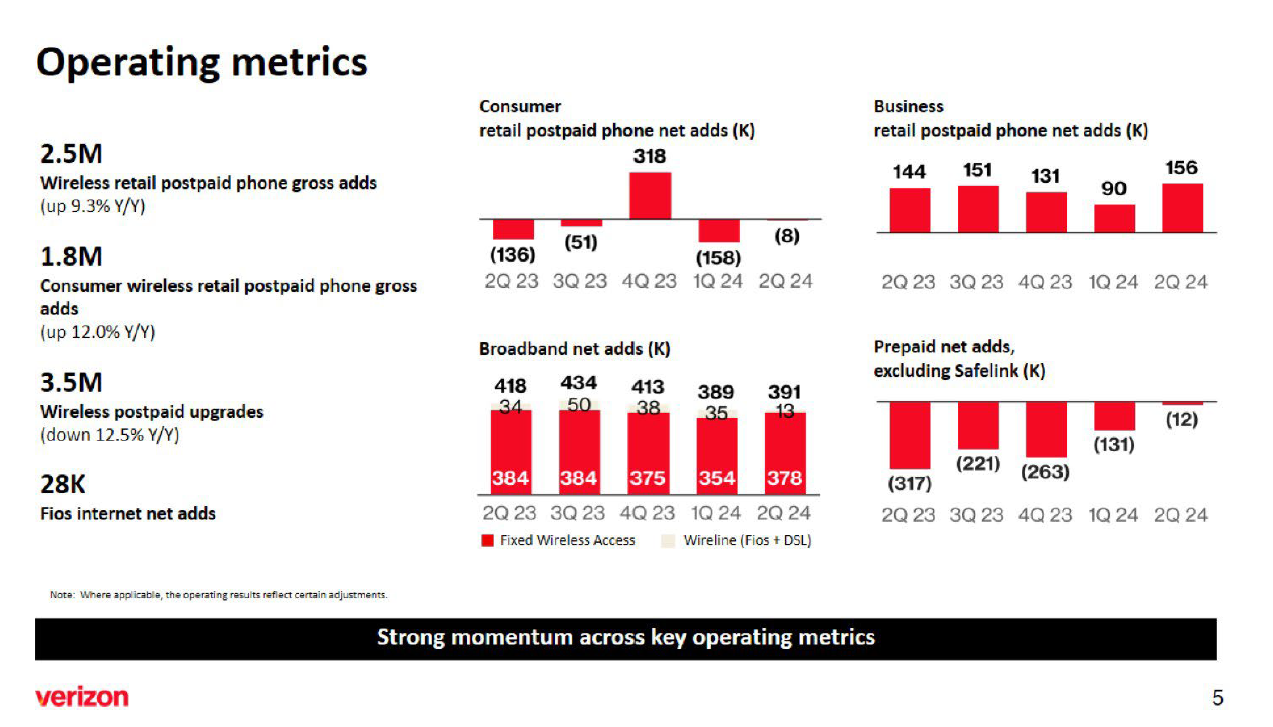Verizon is betting that its network--5G and fiber--can be the "backbone of the AI economy" with a boom of edge computing generative AI workloads on deck. The problem is Verizon hasn't seen real revenue yet but appears to be leveraging generative AI to become more efficient.
Speaking on Verizon's second quarter earnings call, CEO Hans Vestberg outlined the genAI use cases on the revenue and cost side. Vestberg said:
"We will power the best AI services for our customers. What set us apart with AI is our network's mobile edge computing capabilities and deep fiber footprint. By processing data closer to the source, we enable real-time AI application that requires security, ultra-low latency, and high bandwidth. Our network will be at the forefront of AI and mobile edge compute applications."
For operations, Vestberg said AI is benefiting customer service by routing calls to agents, improving network design and personalizing offers. CFO Tony Skiadas said:
"AI is an enabler of efficiencies. You can think about customer care, you can think about the personalization with myPlan. And we see efficiencies coming from there as well."
In many respects, Verizon resembles many enterprises. Companies are leveraging generative AI to save money and become more efficient. The revenue side of the equation isn't quite baked yet. Enterprises have been expanding generative AI use cases, offering takeaways from projects underway and figuring out how the technology fits in with broader digital transformation.
Progress Through The Five A's of AI | Margin Compression - Tech Vendors Are You Leading The Way Or In The Way? | Enterprises start to harvest AI-driven exponential efficiency efforts
Verizon reported second-quarter revenue of $32.8 billion with net income of $4.7 billion. The results were roughly flat with a year ago. Verizon Business revenue was $7.3 billion, down 2.4% from a year ago.

Verizon sees enterprises building out private 5G networks
Vestberg said Verizon has more line of sight into the enterprise business and genAI than the consumer opportunity, which will depend on adoption of smartphones and features lead to device upgrades. Vestberg said:
"I think where I'm most excited is that we have built the Verizon Intelligent edge network which will be the platform for GenAI. You are going to have to have a lot more compute storage at the edge of the network, and that's how we built the network already 2018 with fiber to all our main hubs and between our main subcenters. On top of that, we have cooling and power at those edges. As we go from the LLMs into commercial products for enterprises our network is set up for that. I'm very excited for that opportunity to go forward together with private networks. There are a lot of things coming into GenAI devices, our efficiencies and a business opportunity for us when it comes to AI."
The problem for Verizon is that the genAI mobile edge payoff isn't here yet. Vestberg said Verizon doesn't have genAI in mobile edge computing to customers but it's clear in conversations with cloud vendors and enterprises that large language models will move to the end points.


